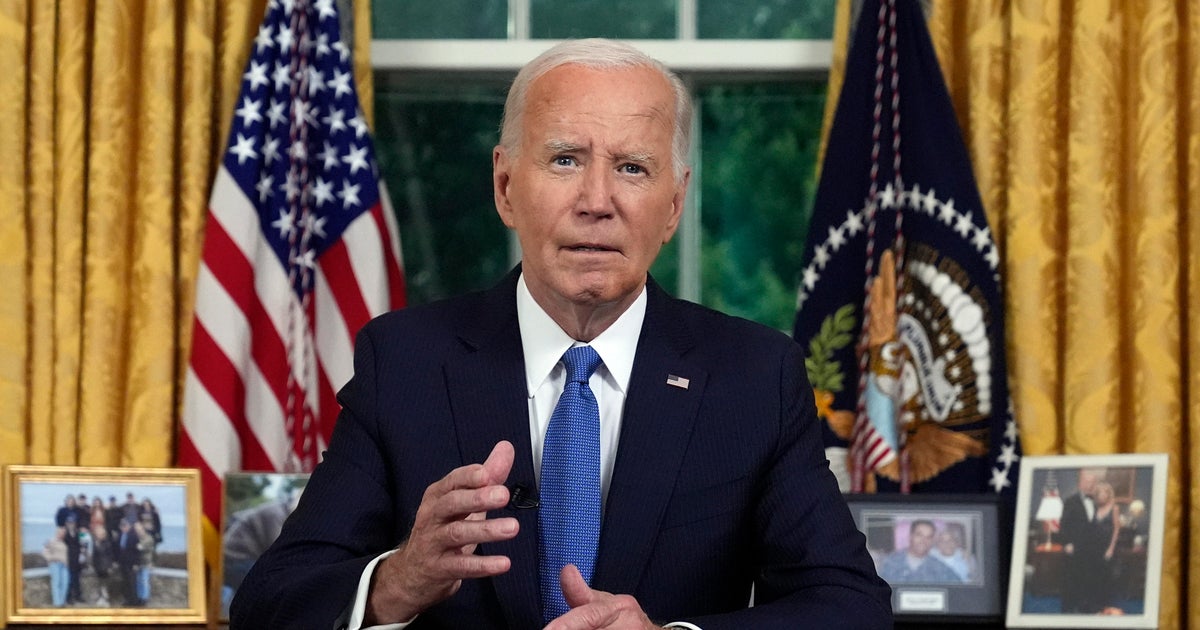What are "red flag" laws, and which states have implemented them?
The tragic news of a mass shooting is almost uniformly met with calls for action to stop gun violence, but efforts to change the nation's policies usually run aground over political disagreements about what should be done.
However, after the recent back-to-back massacres in El Paso and Dayton that took the lives of 31 people, there is one gun control measure that is garnering bipartisan support: extreme risk protection orders (ERPO), more commonly referred to as "red flag" laws.
Sen. Lindsey Graham, Republican of South Carolina, says he's introducing a bipartisan red flag proposal with Connecticut Democratic Sen. Richard Blumenthal.
Seventeen states and the District of Columbia have already implemented such laws, including several that were enacted after the shooting at Marjory Stoneman Douglas High School in Parkland, Florida, last year, which left 17 dead.
Here's what to know about red flag laws and their impact on gun violence:
What are red flag laws?
"Red flag" laws allow courts to issue orders to temporarily confiscate the firearms of individuals deemed to be a risk to others or themselves.
Depending on the state, ERPO laws allow family members and law enforcement to ask a state court judge to issue an order that confiscates the guns of an individual who they believe poses a threat to their safety. ERPO petitioners must present evidence to the court on why the individual poses a threat to others, as well as to himself or herself.
Which states have implemented red flag laws?
- California
- Colorado
- Connecticut
- Delaware
- District of Columbia
- Florida
- Hawaii (effective Jan. 1, 2020)
- Illinois
- Indiana
- Maryland
- Massachusetts
- Nevada (effective Jan. 1, 2020)
- New Jersey
- New York
- Oregon
- Rhode Island
- Vermont
- Washington
Who can petition for a firearm to be removed?
In most states with ERPO laws, a family member may petition for a firearm to be removed from an individual. In other states, only law enforcement officials can make the petition. Here's who is permitted to petition in each state:
- California: Family, household members and law enforcement
- Colorado: Family, household members and law enforcement
- Connecticut: One state attorney or any two police officers
- Delaware: Family, household members and law enforcement
- District of Columbia: Family, household members, mental health professionals and law enforcement
- Florida: Law enforcement
- Hawaii: Family, household members, teachers, medical professionals, coworkers and law enforcement
- Illinois: Family, household members and law enforcement
- Indiana: Law enforcement
- Maryland: Family, household members, certain health professionals and law enforcement
- Massachusetts: Family, household members and law enforcement
- Nevada: Family, household members and law enforcement
- New Jersey: Family, household members and law enforcement
- New York: Family, household members, school administrators and law enforcement
- Oregon: Family, household members and law enforcement
- Rhode Island: Law enforcement
- Vermont: State attorneys or the office of the state attorney general
- Washington: Family, household members and law enforcement
How quickly can an order be issued?
Here's where it gets technical. All states allow orders to remove an individual's firearm to be issued ex parte, meaning without notice to the individual. Though the ex parte order can be executed quickly, it is brief in duration. A court hearing for a final order to remove the gun for a longer period of time generally follows, and at this hearing, the individual has the opportunity to contest the order.
The duration of ex parte orders varies from state to state, according to the Giffords Law Center, a research organization which advocates for more restrictive gun control measures.
For example, in California, a hearing must be held within 21 days of an ex parte order. In New York, however, the hearing must be held within just six days.
The duration of a final order also varies. In most states, the final order lasts for a year, and at that point, it can either expire or be renewed. In Illinois and Vermont, the final orders last for up to six months. In New Jersey, the final order lasts indefinitely, unless the individual whose gun was confiscated proves in a hearing that he or she is no longer a danger.
Are red flag laws effective?
Indiana and Connecticut have had ERPO laws in place for over a decade, meaning that there is some research on the law's efficacy in stemming gun violence. After Connecticut bolstered its enforcement for the law first enacted in 1999, a study found that the state's firearm suicide rate declined by 14%. Between 2005, when the law was enacted in Indiana, and 2015, the firearm suicide rate decreased by 7.5%.
According to Everytown for Gun Safety, a pro-gun control group backed by former New York City Mayor Michael Bloomberg, ERPO laws have been invoked several times to prevent potential violence against schools. In Seattle, Washington, a regional firearms enforcement unit has recovered 200 firearms from 48 orders.
Ally Jarmanning, a reporter for WBUR in Boston, Massachusetts, told CBSN that 14 individuals have had their firearms confiscated under the new ERPO law enacted in 2018.
Which states are considering these laws?
ERPO legislation is currently under consideration in these states:
- Michigan
- Minnesota
- North Carolina
- Ohio
- Pennsylvania
ERPO legislation was voted down by the Republican-controlled legislature in Virginia in January. An ERPO bill has been introduced in Tennessee, but the Republican-controlled legislature has yet to take it up.




